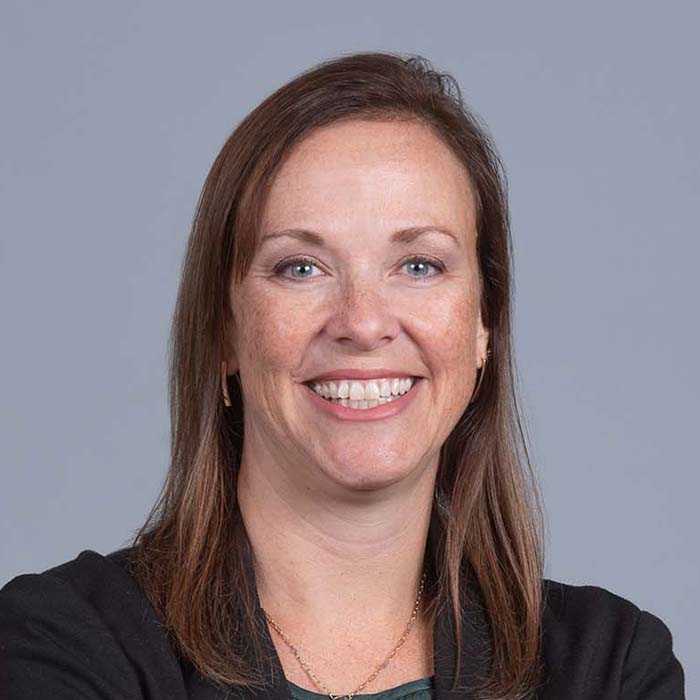Before the pandemic, our idea of counseling looked a lot like Tony Soprano taking time out of his busy day to see Dr. Jennifer Melfi in her office. The times sure have changed.
During the onset and height of the pandemic, virtual counseling was the only option for most people. Patients and counselors alike were deeply concerned about their safety and the risk of contracting COVID-19. Federal policy changes to telehealth expanded access to care through secure video conferencing applications such as Zoom, Skype, Apple FaceTime and Facebook Messenger video chat.

With the decrease in COVID-19 cases and the loosening of many of the restrictions put into place during the pandemic, there is a sense that a return to normalcy is imminent. But will counseling be the way we remember it?
The realities of today are quite different from those of just two years ago. Many mental health providers have made a historic and, in many cases, permanent shift to virtual counseling appointments.
In a survey of its members, the American Psychiatric Association found that nearly 64 percent of respondents did not use virtual sessions at all before the COVID-19 pandemic. During the pandemic, the number of respondents who reported using tele-psych for over three-quarters of their appointments soared to nearly 85 percent!
Patients, too, are also becoming more accepting of virtual counseling. A recent survey showed that almost three-quarters of Americans say that the pandemic has made them more eager to try virtual care.
We are in the middle of a great mental health awakening, and the demand for care has skyrocketed since the beginning of the pandemic. Virtual counseling has been an invaluable modality for getting people help, especially when it is desperately needed.
In a New York Times survey collected by Psychology Today, nearly one in three clinicians reported that it could take at least three months for a patient to get an appointment with them. Virtual appointments can significantly reduce the time individuals wait to meet with a counselor in many cases within a week.
In addition to being seen sooner, individuals open to virtual appointments will enjoy other benefits such as greater choice. Virtual counseling offers broader access to those in rural areas or places that lack treatment providers, saves time and cost associated with not having to travel to a provider’s office and reduces fear and hassle related to COVID-19 protocols. Gone are the days of carving out travel time to meet with the counselor, worrying about traffic or bad weather and missing time from work or other responsibilities.
Virtual counseling is also a significant benefit for those individuals with limited financial resources who may not have the means necessary to travel to an office or individuals with physical disabilities who find it difficult to travel. Additionally, those who need to maintain social distance from others during the pandemic can also find comfort by attending sessions in their home.
The convenience of virtual counseling is also improving engagement in care. A study on telehealth appointments found that the no-show rate of telehealth visits during the pandemic was 7.5% and 36.1% for in-office visits. This reduction in canceled sessions means that providers have been able to see and help more people through virtual counseling.
It’s easy to see the value that virtual counseling creates through greater access and convenience for individuals. But how effective is virtual counseling?
Virtual counseling has gained more focus since the start of the pandemic and warrants further research, but it’s not a new area of study. Many providers have effectively used and studied virtual counseling for years, and treatment protocols have been created around this modality.
Recent peer-reviewed studies from the National Institutes of Mental Health and the American College of Health provide data speaking to the efficacy of virtual appointments for many types of patients. Both studies show that respondents saw no significant differences in the effectiveness of in-person and virtual appointments. Over 80% of people using teletherapy reported their experience was equal to or better than pre-COVID pandemic in-person services.
Virtual counseling offers a unique ability to meet individuals where they are. For example, a depressed person may have symptoms that interfere with their being able to leave their house and engage in the world around them. Think about how much easier it is for this person to meet with a virtual clinician instead of traveling to an office.
Another distinctive advantage of virtual counseling is the ability for the counselor to view their patients in their environment. This inside look allows them to observe nuances they might not otherwise discover in the office.
Is virtual counseling the way of the future? The verdict is still out, but there is a good possibility. There is legislation that is being considered for improving care to communities. Currently, 28 states have enacted legislation to allow psychologists to practice telepsychology across state boundaries.

Additionally, the Department of Defense has awarded a grant to develop an interstate license compact for social workers. This compact will allow licensed social workers to practice in participating states offering greater access to care.
Although many of the changes were necessary during the pandemic, the conveniences, efficacy and outcomes have created sticking power. It’s safe to say that we can expect to see more acceptance of virtual counseling as it continues to grow in popularity and offer better access to care.
Want to dive deeper? Download our white paper on the Great Mental Health Awakening.
